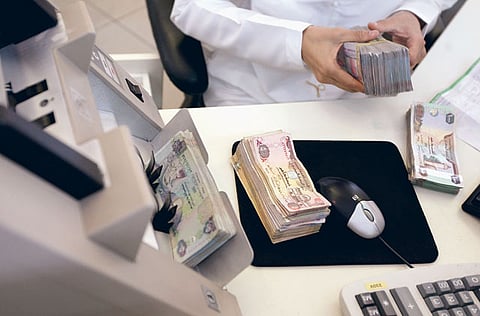GCC economies need to get foreign fund inflows back into growth mode
This is the time for these economies to build a bloc mindset

Also In This Package
Over the last decade, oil market dynamics have fundamentally changed, with serious implications for GCC economies and foreign direct investment.
The new dynamics have come from the shale revolution, reduced renewable energy costs and a global focus on climate. Oil demand also softened due to the pandemic.
Brent crude fell into negative territory in 2020 and is only now recovering to January 2020 levels. The GCC will still pump and sell oil into for decades to come, but we will be navigating a challenging environment where the long-term oil price outlook is uncertain at best.
Anaemic growth
The pandemic has also exacerbated softening growth trends. In 2019, GCC GDP growth fell to an average of 0.8 per cent. S&P expects growth to only be 2.5 per cent for 2021-2023, significantly below pre-2016 levels. The fiscal impact of oil prices in 2020 and 2021 provides an uncomfortable glimpse into the future, with GCC budget deficits averaging 9.2 per cent and 5.7 per cent of GDP, respectively.
Despite good intentions, GCC economies remain stubbornly dependent on hydrocarbons. Oil and gas represent over 40 per cent of GDP other than in UAE and Bahrain.
We need to diversify our economies and make growth more sustainable. Foreign capital is an important aspect of diversification and, whilst improving national balance-sheets it provides access to global knowhow and governance.
Reverse capital flow
Historically, the GCC has been a source of capital. Global operators sold products and services here, expats remitted money from here, and investors raised funds here. In 2017, $120 billion was remitted from GCC countries. Outward FDI peaked at $49 billion in 2018.
Briefly, from 2005 to 2007, we saw net FDI inflow of $17.8 billion annually. Since then, private capital leaving the region has exceeded incoming investment.
Recently, the situation has deteriorated. Net FDI from the GCC increased from $15.7 billion in 2016 to $27.5 billion in 2018 –a period when oil prices softened.
Change in role
Given the dynamics, the best approach to diversifying funding sources is one that evolve gradually from oil revenues being invested directly by governments to governments supporting private capital and FDI into local economies. And, finally, to governments simply becoming facilitators, only stepping in to stimulate in dire economic circumstances.
Indeed, most recent inward flows are government-backed and low risk. For instance, the $5.5 billion acquisition of 49 per cent of ADNOC property assets by an Apollo-led consortium in September 2020. Or GCC sovereigns’ issuance of $35 billion euro-bonds in 2020.
To attract FDI, GCC countries have to be more responsive to the needs of investors. At the heart of FDI are MNCs, which seek new markets in close proximity to natural resources (in which the GCC is well-stocked), for raw materials, to avoid tariff/non-tariff barriers or to reduce transport costs.
They seek proximity to consumers. GCC, whilst small in absolute population numbers, has a high and fast-growing GDP per capita, contributing to high consumption. MNCs are important because they bring efficiency via greater competition, training of labour, job creation and introducing new technologies.
Act as a region
And not as isolated countries. Global trade is increasingly dominated by blocs. Although the GCC Customs Union is in place, freer movement of goods and labour is desirable if we want to offer MNCs one attractive, large market. Diplomatic progress such as relations with Israel or Qatar help establish regional stability and common drivers.
Make labour, skills accessible
Companies will always require available, reasonably priced labour which is both skilled/unskilled according to needs. The GCC is ideally positioned to offer this. We need educational reforms to align skills with market needs, and drive interest in entrepreneurship and the private sector.
Ease burdensome regulation
We need to develop bankruptcy laws, allow company set up without physical premises, ease registration, allocate some government contracts to local businesses, and improve access to finance. Dubai-based, Ento Capital, recently noted GCC countries executed 35 new reforms, including on foreign ownership and bankruptcy laws, enhancing the region’s competitiveness.
Infrastructure
With increased global competition we need not just factories and reliable roads, but also excellent wi-fi, modern accommodation and attractive amenities if lifestyle-focused employees are to relocate.
There is no magic button for the GCC to press, but a list of must do’s that can only attract more FDI, diversify the region’s economies and tackle the fiscal mountain that we face.










